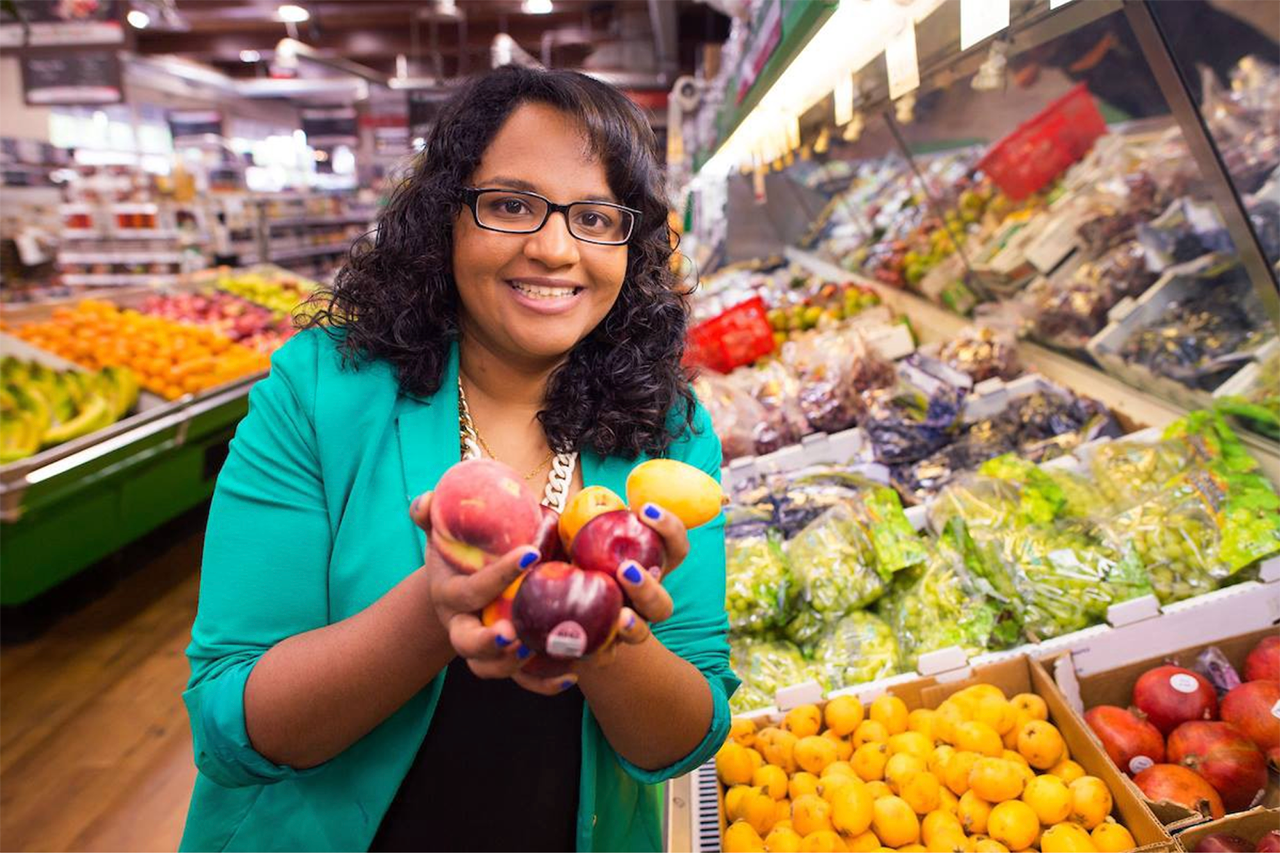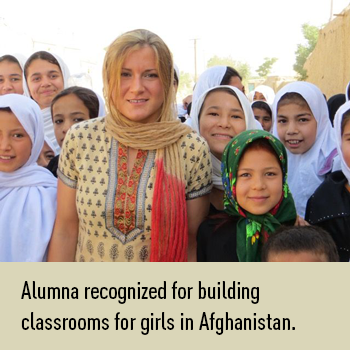
Photo credit: Richard Siemens
Food is an essential part of our lives. Of course, we eat it to survive, but what we eat also tells a lot about who we are.
Throughout her undergraduate program, Juanita Gnanapragasam worked alongside international students during volunteer stints as a UAlberta Ambassador and at the Healthy Campus Unit.
She would often hear of the struggles international students faced on campus, especially when it came to familiarizing themselves with a different food culture.
But as she told me, what really opened her eyes was a conversation she had with a student from Northern China, where it was common for tap water to be contaminated.
"She would buy water in bulk to cook because she was afraid of using tap water. Nobody told her tap water in Edmonton was so safe that you could drink it," Gnanapragasam explained to me during our chat.
When Gnanapragasam scoured campus resources to see if there was a way she could help international students better understand the local food culture, she found nothing.
As a result, Gnanapragasam decided to focus on barriers facing international students and healthy eating in her project with the Undergraduate Research Initiative (URI).
Open to all undergraduate students, the URI connects them to research opportunities across campus and offers a $5,000 stipend towards completion of research projects.
Gnanapragasam then interviewed 42 students from 24 countries for her project and found something that surprised her.
"You would think different cultures and countries would present different barriers, but in reality, the barriers were similar," she said. "What I found with students was that they wanted to continue the food culture they were brought up with because it was their last connection to home."
It was this barrier that made it difficult for international students to adjust because they came with expectations the local food culture would be relatively the same.
"When you ask for water in a restaurant, you get warm water in China, but you get cold water in Canada," Gnanapragasam described to me. "In some interviews, students told me they had no idea what 'vegan' or 'celiac' meant because those words did not exist in their culture. In fact, some had no idea what 'RSVP' meant and they had nobody there to explain those terms."
During her project, she also heard from students who said they felt embarrassed asking questions about the local food culture because of the shame in not knowing something they should have.
"The thing that surprised me the most is when students had social support, the barriers decrease," Gnanapragasam said as she began to smile. "When they could go grocery shopping with friends or cook with roommates, food no longer become a burden, and they had someone to ask questions with."
Now a master of public health student specializing in health promotion, Gnanapragasam decided to use her degree to advance her project findings.
"My master's degree helped me figure out who to talk to and how to network with people so my ideas could be piloted and implemented. It has been great to see the support from the campus community."
She has been working with several campus organizations, including University of Alberta International (UAI), to improve how international students connect with the local food culture. She is mindful of working with partners that have the resources to run programs continuously to benefit future international students.
During this year's UAI Transitions Orientation program, she created a poster board and spoke with students about setting up a kitchen, the nearest grocery stores to campus, and tips for meal prepping.
In addition, she has worked with the Office of Sustainability to offer two cooking classes: one on the fundamentals of cooking, and the other led by international students. The latter class teaches other international students how to cook fried rice and adopt it to Canadian food guidelines while maintaining aspects of their own culture in the meal.
Sitting back in her chair, Gnanapragasam is excited about the prospects of her ideas. Her end goal has always been "to have students come here and not have to worry about food" because it becomes "one less stress for them."
"Food was a way my parents passed on their culture to my brother and I," she said. "It has a cultural significance, and when we forget the role it plays in our lives, we lose part of our own humanity."
Juanita Gnanapragasam was recently named to the Alberta Council for Global Cooperation's Top 30 under 30. This list highlights extraordinary young people who are working towards a just and sustainable future for everyone.
This article originally appeared on YouAlberta; University of Alberta's official student life blog.
